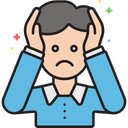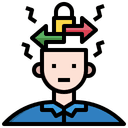The answer to this question is that it varies from person to person. Everyone's body is different, and we all deal with different symptoms, sensations, and feelings. We also all have different nervous systems; our bodies can only handle a certain amount of activities and stress. I was put in this situation during my first couple of months in recovery, and thankfully I made the right decision.
Resting during Anxiety or Depersonalization Derealization (DPDR) Recovery
If you feel your body is highly stimulated, you have hundreds of symptoms, or you can't do anything, rest as much as possible. On top of rest, keep up with self-care, therapy, stress management, and eliminating worries and fears. You must also ensure that you aren't lying in bed all day or sitting watching tv all day; the body needs to stay active. Engage in exercise, conversations, creating new relationships, and other activities. Ensure you aren't stressing your body too much since this can bring on more anxiety and/or depersonalization derealization disorder (DPDR) symptoms.
I was in this situation about a year ago. I had hundreds of symptoms plaguing me, and I felt like I couldn't do anything. When I tried studying, my brain wouldn't let me because of DPDR symptoms. I also had hundreds of intrusive thoughts that made it impossible for me to focus on anything. I decided to get rest for three months until my nervous system had made more progress in recovery.
During those three months, I tried to stay as active as possible. I found a good combination of what worked excellently for me; this took a lot of testing and experimenting. I made sure to play a sport one to two times a week, walk at the park daily, eat a healthy diet, and sleep at 9 PM every night(if I could even sleep that night). If I were to play soccer more than two times a week or sleep late, I would find myself dealing with more symptoms, anxiety, and DPDR. Just a little bit of extra stress in my routine, and my nervous system would tip over.
Continue Living Normally
Eventually, as I started feeling stronger to do specific tasks, I returned to living "normally." I picked up a full-time job and made sure to eliminate stress and anxiety as much as possible; this was no easy task; I was highly uncomfortable working and leaving my comfort zone due to panic attacks and fear. Although working and living "normally" became almost impossible, I am glad I took that step forward and left my comfort zone. You can never conquer fears if you don't step out of your comfort zone.
If you feel as if you are strong enough to live life normally, continue living. This doesn't mean everything will be perfect; expect to be constantly uncomfortable, full of fears, and worried. Part of recovery is taking that step forward to live your life as if nothing is wrong. You need to get comfortable with being uncomfortable. As you continue living your life normally, stay on top of stress reduction techniques, get good rest/exercise, and eliminate worry and fears.
Do Not Stay Resting Forever
Do not use resting as an excuse not to conquer your fears. Anxiety's/DPDR's goal is to limit you from ever living your life; this is especially important for DPDR recovery. Once you are ready, you must engage in activities as much as possible and live your life as if nothing is wrong. We need to train and rewire our brains to learn that there is no threat in our life; we are safe. Here at FreeMind, we offer our members the best support possible at an affordable price. We want to ensure our members are on track to make a full anxiety, DPDR, or OCD recovery.





